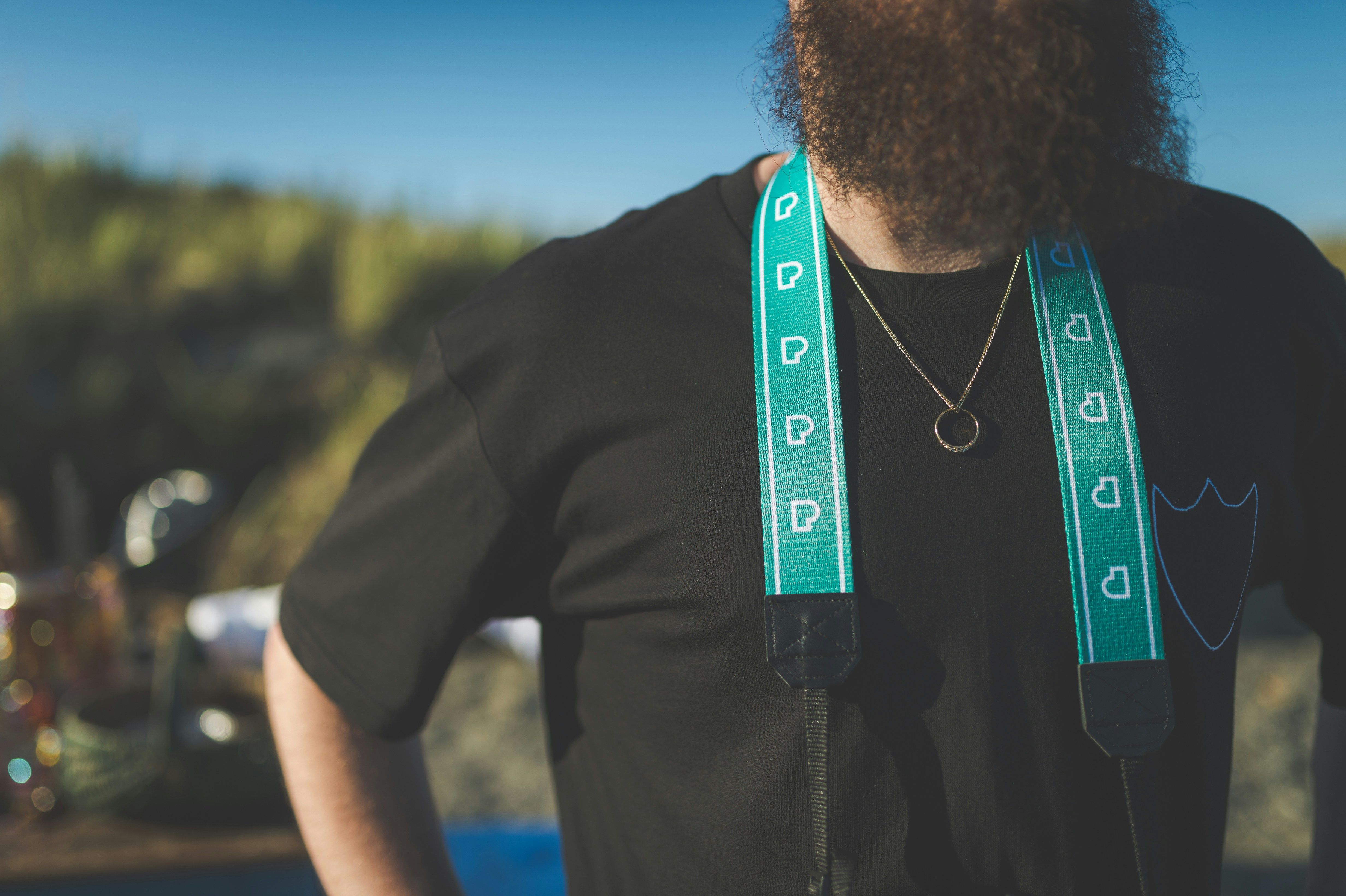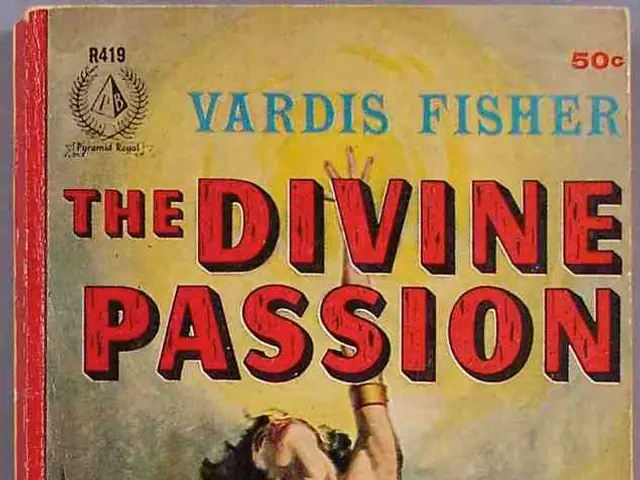Assertive, dominant men, often referred to as alpha males, are prevalent. Alternative men's groups aim to redefine masculinity.
Hoping to fill a void in his life, Tyrone Marsh embarked on a journey to find real connections.
In his 40s, married with kids, he was a social butterfly, but he found his conversations with other men lacking depth. Craving genuine friendships, he stumbled upon a Meetup group that turned out to be The ManKind Project - an organization offering retreats and support groups designed to help men better understand themselves and their relationships.
At his first meeting, Marsh discovered what he had been missing for years. "I can sit there with this group of men and stumble through whatever thoughts I'm having," he explains. "They hold the space for me, ask questions, and I don't feel judged."
Men's Lack of Deep Connections: A Growing Concern
Marsh's quest for friendship highlights a significant challenge faced by many men today.
As loneliness and isolation increase across gender lines, men are particularly hurdled in forming profound friendships - a trend with serious implications. Socially isolated men put additional strain on their partners, fall prey to online misogyny, and face heightened risks of depression, suicide, and domestic violence.
At a time when some men find community in toxic areas of the "manosphere," men's circles present a more positive, model of masculinity.
Experts point to a growing appetite for these groups in the US, UK, Canada, and Australia, with participants reporting improvements in emotional intelligence, self-awareness, and deeper relationships.
Men's Circles Challenge Traditional Ideas of Masculinity
Over years of participation in men's circles, Marsh - now ManKind Project USA's co-chair for intercultural competence and belonging - built a network of close friends he could count on.
This network helped Marsh develop a better understanding of himself. Now, when faced with career challenges or personal doubts, he no longer suppresses his feelings; instead, he confesses and considers his options with more clarity. He embraces his emotions, allowing himself to express them openly. He listens before speaking.
"We learned as men to suppress our feelings, to just do it by ourselves, man up, and be strong," Marsh admits. "But these circles flip the script."
Men's circles, led by trained facilitators, follow a similar structure. Ground rules are established, followed by a check-in where attendees share how they're feeling and discuss everything from relationship issues and career challenges to health crises. The men take turns listening to each other, offering constructive feedback, and the meeting closes with takeaways or mere acknowledgment of what was accomplished.
These gatherings help men enhance their social skills and strengthen their relationships with other men, says Pasco Ashton, co-founder, and executive director of the UK-based Men's Circle.
"Men don't have the same social tools," explains Ashton. "They haven't learned the same tools that I think women have - small talk, connecting emotionally, emotional intelligence."
Ashton started a men's circle in 2020 after losing two friends to suicide and seeking self-improvement following conversations about #MeToo. His pals in the park eventually formed a larger organization spanning across the UK and now even has members in Europe and the US.
In an informal survey conducted by his organization, participants reported gains in mutual support, life perspective, emotional regulation, self-awareness, and critical skills.
Men's Struggles to Foster Deep Friendships
The reason men struggle to create deep friendships is not biological, says Niobe Way, author of "Rebels with a Cause: Reimagining Boys, Ourselves, and Our Culture." Rather, it's a cultural issue.
In her extensive research on adolescent development, Way has found that boys desire close friendships. However, societal pressure for men to "man up" results in a crisis of connection as men become less open and more isolated.
Marsh felt this acutely growing up. Raised in inner-city Nashville with an incarcerated father and abusive stepfather, there was little room for emotional intelligence in his household.
Trying to model a different approach for his children, Marsh showed them that their feelings were valid and their voices mattered. However, some ingrained ideas proved difficult to shake.
Before Marsh began attending men's circles, his son Kapila, 20, says he and his older sister were held to a different standard when it came to showing emotion.
"At times, my emotions were valued, but her emotions were 100% of the time valued," claims Kapila. "For me, there needed to be an extra step of 'This is how you're feeling, but what are you going to do with this?' rather than just 'This is how you're feeling' and being able to be vulnerable."
Kapila internalized this pressure growing up, feeling like he needed to prove himself to be taken seriously. But he started to notice changes in his father once he got involved with the ManKind Project.
Marsh began asking him more open-ended questions, trying to understand the roots of why he felt a certain way. It took some adjusting for Kapila - he was accustomed to following his father's advice, and it felt like his dad stopped guiding him.
Now, Kapila realizes that his dad was training him to trust his intuition and navigate life independently. In his eyes, it made him a better parent.
Rick Fortier, 63, has felt the crisis of connection, too. For most of his life, he felt safer around his female friends.
"I'd always had this feeling of being judged walking on eggshells around other men most of my life: Was I saying the right thing? Were they doing the right thing? Was I man enough?" shares Fortier.
His first experience in a men's circle challenged those norms. The environment was open and non-judgmental, with attendees pushing each other to be honest and authentic. And while it took some trial and error to find a circle that felt right, Fortier says his current group - which he's been attending for eight years - is helping him explore the type of man he wants to be.
The six or so members meet biweekly and discuss a wide range of topics: Negative self-image, romantic challenges, and pressures to conform to certain stereotypes as men. Two members passed away in the last year, so feelings around death have become a major focus of their discussions.
"It's deeply rooted in our souls to have brotherhood, and we don't know how to do that in our society other than through sporting events, drinking, going hunting, or whatever might be typical of accepted masculine behavior," Fortier concludes.
Tyrone Marsh's journey towards finding real connections signifies a growing concern about the lack of deep friendships among men, which is a trend with serious implications on mental health, relationships, and overall well-being. As Marsh's experience demonstrates, men's circles offer a positive alternative to traditional masculinity, providing opportunities for emotional intelligence, self-awareness, and meaningful connections. The growth of these circles suggests a growing appetite for such safe spaces where men can discuss and cope with various life challenges, fostering healthier lifestyles and mental health.










